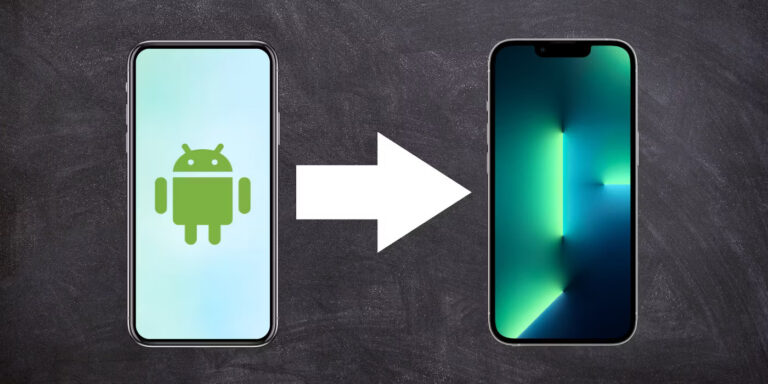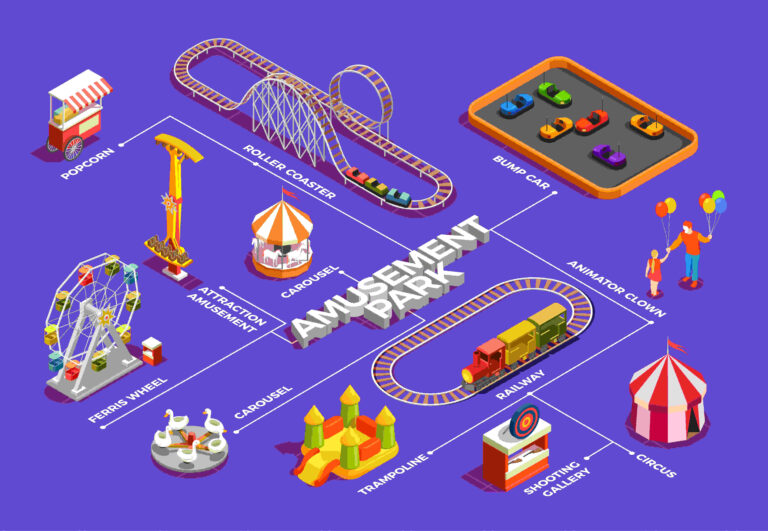An Airbnb clone is a rental property management software platform that is built based on the features and functionality of Airbnb. By allowing owners to list, book, and manage their short-term rental properties online, Airbnb clones have become popular among hospitality entrepreneurs looking to enter the vacation rental market.
However, the success of an Airbnb business depends greatly on how well it is customized for the target location and audience. A generic clone solution will not be as effective as one that is tailored specifically for the needs of a particular market.
This in-depth guide will show you exactly how to fully customize your Airbnb clone for optimal results within any location. By following the customized setup and configuration steps outlined here, you can ensure your platform is perfectly suited to serve the unique demands of your target users and area.
Let’s get started!
1: Choosing the Right Market
The first step is to select the ideal market for your short-term rental business. Take time to research potential locations based on travel trends, demand drivers, and competitive landscape. Some factors to consider include:
Demographic Research – Analyze population statistics, income levels, education, occupations etc. of target areas to understand customer profiles. Industries with many business travelers are promising.
Travel Trends – Research which destinations are attracting more visitors nationally and globally. Look at events calendar to identify best times. Consider short-term stays like weekend getaways too.
Competition Analysis – Check major platforms like Airbnb and Vrbo to gauge listings, prices and availability in various locations. Consider underserved areas or opportunity for niche accommodation types.
Amenities – Research transport links, attractions, recreational facilities etc. in potential areas. Locations with more amenities can demand higher rates.
Seasonality – Understand peak seasons and off-season periods. Customize operations and pricing strategy accordingly.
With databased research on the above factors, you can identify target markets with highest potential and latent demand for your customized offering.
2: Design and Branding
Design is crucial to making a good first impression on users and standing out from competition. Here are some tips:
-
Create a logo that reflects your brand personality and market positioning. Use custom colors and fonts for visual identity.
-
Customize all website templates including home page, property page, booking pages etc. Optimize images, headings, calls-to-action etc.
-
Highlight your unique value proposition – Whether it’s location, amenities, experiences or service quality. Communicate it clearly on site.
-
Tailor content and messaging to your target personas and location. Mention specific neighborhood highlights, insider tips etc.
-
Ensure seamless integration of UI/UX design principles. Test on multiple devices for user-friendly experience.
-
Maintain consistency across all brand touchpoints like site, social profiles, emails, apps etc. for recognition.
Proper branding and visual identity helps you stand out locally and build credibility with customers. Don’t forget regular updates and improvements based on user research. Read more about Zipprr Airbnb Clone App.
3: Listing Types and Amenities
A key factor of success is offering flexibility to owners while catering to user needs. Consider these configuration options:
Listing Types
- Entire Home/Apartment
- Private Room
- Shared Room
- Unique Places (barns, boats, cabins etc.)
Amenities
-
Allow owners to select from a predefined list of amenities for each property (WiFi, TV, kitchen, pool etc.)
-
Offer checkboxes, number inputs, text boxes based on amenity type
-
Configure minimum standards and requirements for listing quality
Rules and Policies
-
Set guest limits, pet/smoking policies, noise restrictions etc.
-
Allow custom house manuals with photos and detailed property information
Ensure your platform can accommodate diverse properties, neighborhood standards and traveler needs through granular configuration. Test listings are also a good way to improve UX based on owner and guest feedback.
4: Calendar and Pricing Tools
Sophisticated calendar and pricing tools are crucial for maximizing bookings and revenue year-round. Consider these options:
Calendar
-
Fully customizable per property (availability, blocked dates etc.)
-
Intuitive visualization tools for date selection
-
Automatic sync with external channel partners
Pricing Strategy
- Configurable dynamic/seasonal pricing
- Pricing rules based on dates, duration, last minute etc.
- Promotional pricing and package deals
Booking Windows
- Set ideal and minimum booking windows
- Allow instant/last minute bookings if required
Cancellation Policies
- Refundable and non-refundable options
- Customized penalties and thresholds
Give owners control while enforcing standards. Load testing and responsive design ensures glitch-free performance during high seasons. Integrate price tracking tools to benchmark competition locally.
5: Payments and Currency
Setting the right payment options instills trust and convenience for users from all over the world. Consider:
Supported Currencies
-
Analyze target customers and determine major currencies used
-
Support dynamic currency conversion during payments
Payment Methods
-
Credit/debit cards, online banking, e-wallets etc.
-
Integrate global gateways like PayPal based on market
-
Enable custom payment plans and installments if required
Security Deposits
- Allow security holds on cards during bookings
- Customizable refund rules to balance owner/guest needs
Local Payment Methods
- Integrate popular regional wallets/cards based on research
Ensure seamless payment experience across devices and borders. Address any compliance requirements for your target markets.
6: User Authorization
Smooth user flows and multi-step verification reinforce security and conversions. Consider:
Registration
- Intuitive sign up fields based on user type
- One-click sign up with social logins
Verification
- Email, phone verification for critical accounts
- ID/document uploads for specialized listings
Profiles
- Detailed customizable profiles for credibility
- Photo profiles and reviews for community
Roles and Permissions
- Guest, owner, manager roles with settings
- Approval workflows for critical actions
Dashboard and Notifications
- Personalized dashboards for each user
- Real-time update on bookings, queries, reviews etc.
Reduce friction and ensure regulatory compliance simultaneously. A/B test UI/UX for highest conversions.
7: Communication Tools
Engagement is key for resolving issues swiftly and retaining users. Consider:
Messages
- One-click direct messaging in a user’s language
- Message translation for global conversations
Bookings and Itineraries
- Automated booking confirmations
- Customizable pre-arrival guides and directions
- Address verification on check-in/out
Pre-Booking Queries
- Task management portal for owner-guest queries
- Canned responses for common questions
- Message routing and assignment
Surveys
- Send automated feedback forms post-stays
- Nudge non-respondents respectfully
Notifications
- Timely alerts on new bookings, messages, reviews etc.
- Settings to opt-out of specific alerts
Personalized communication builds trust in your platform across borders and languages.
8: Rules and Policies
Clearly defined community standards create structure for healthy interactions. Consider:
House Rules
- Default rules on noise, parties, pets etc.
- Customizable rules per property
Terms and Conditions
- Comprehensive legally vetted T&Cs
- Simple language with regionalizations
Cancellation Policy
- Customizable refund windows and rules
- Automatic penalty/refund calculations
Blockout Dates
- Customizable blockout periods for events
- Automatic reservations during blockouts
Document Library
- Safety guides, area details and maps
- Emergency contacts per property
Enforce policies respectfully while prioritizing owner and guest satisfaction. Consider local laws for compliance too.
9: Reviews and Ratings
Timely, authentic reviews are invaluable for credibility and success. Consider:
Review Prompts
- Automated requests on check-out
- Respectful follow-ups for no-response
Submission Process
- Intuitive fields to rate key metrics
- Allow photo/text submissions
Moderation
- Settings to hold/edit inappropriate reviews
- Allow owner-response for transparency
Display
- Average ratings calculation and badges
- Sample reviews on listings for others
Incentives
- Loyalty points on platform for reviews
- Badges for most helpful reviewers
Balance honest feedback with positivity. Protect privacy while promoting community interaction.
10: Analytics and Reporting
Analytics provide invaluable insights to optimize operations, pricing strategies and marketing initiatives. Consider these reporting and dashboard features:
Admin Dashboard
- Customizable widgets for quick visibility of KPIs
- Bookings summary, revenue trends, occupancy rates etc.
Property Reports
- Detailed bookings, earnings, reviews for each listing
- Benchmark performance against similar properties
Customer Segment Reports
- Analyze booking patterns of guests from different locations, demographics etc.
- Understand high-value customer cohorts
Channel Performance
- Identify most effective acquisition channels
- Adjust marketing budget and campaigns accordingly
Pricing Analytics
- A/B tests to determine best price points for dates
- Competitive pricing analysis in local market
Customer Lifetime Value
- Calculate repeat booking rates, upsells and cross-sells
- Prioritize high LTV customers through personalized outreach
Reviews Analytics
- Sentiment analysis to improve listing attributes
- Correlate reviews with bookings and pricing
Ensure dashboard customized to key management roles. Integrate third-party tools for predictive modelling. Protect privacy while anonymizing customer profiles. Regularly audit metrics to optimize strategy.
11: Mobile App Customization
A responsive mobile experience is essential for convenience and bookings on the go. Consider:
Branding & Assets
- Custom launch screens and icons
- Consistent branding as the website
Features
- Listings, bookings, payments, messaging
- Integrated calendar and pricing tools
Customizable Workflows
- Simplified user flows for small screens
- Configurable based on research and tests
Push Notifications
- Timely alerts and reminders
- Settings to disable non-critical alerts
Maps Integration
- Display properties on maps
- Directions, distance calculation
Ensure seamless sync between all channels. Progressively add features based on feedback.
12: Additional Services
Beyond accommodations, monetize local experiences for incremental revenue. Consider:
Activity Bookings
- Tours, classes, outdoor adventures etc.
- Add-ons for estimated prices
Vendor Partnerships
- Commission-based booking of local services
- Vetted tourist packages and deals
In-App Purchases
- Concierge services, area guides
- Tickets, vouchers at discounted prices
Rewards Program
- Loyalty points on spends redeemable as credits
- Exclusive perks for high-value guests
Affiliate Marketing
- Revenue sharing from referrals to third-party services
- Strategic partnerships for cross-promotions
Diversification enhances value for guests while supporting the local community.
Conclusion
A thoughtfully customized clone allows you to penetrate any market with a tailored offering. Focus on deep understanding your location— from cultural nuances to traveler needs.
Iterate based on continuous research and feedback. Enhance functionality with third-party tools while respecting brand essence and workflows.
Have experts audit your compliance, design and features based on target region specifications. Schedule proactive maintenance and improve what works best through data.
Customers today expect streamlined experiences on all devices. Providing a highly optimized, localized solution responsive to their needs will help you establish credibility and maximize success in any market worldwide.












